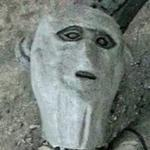|
Rights of Man
|
|
|
|

|
| # ? Jun 1, 2024 21:06 |
|
Rights of Manly Men
|
|
|
|
Rights of Birth
|
|
|
|
Only Men should have rights, which is what I think this debate is about.
|
|
|
|
Rights of men. We need to prioritze proper Scythians, not hellenistic city-folk.
|
|
|
|
Rights of birth
|
|
|
|
we did toleration-- and don't get me wrong, i voted for it--- and suddenly there's a lot of baby lovers in our kingdom makes you think
|
|
|
|
Rights of Birth If you think about it, there's no wrong answer.
|
|
|
|
9: And behold a pale horse Unsurprisingly, the Thagi-Bajzæyat reacted to the burning of Thessalonika with grave concern - not for others, but for themselves. In short order, Koysam promulgated a revised code of law which gave much greater emphasis to the rights of the nobility, and exempted them from many of the traditionally required sacrifices ‘should they deem themselves unwilling’. While this protection was not extended to all social ranks, the effect on the ground was that members of the Christo-cultus in the aristocracy (and members of the aristocracy who were sympathetic to the cult) could effectively grant their fellow cultists immunity from prosecution, should they be prepared to vouch for their good character.  This was promptly put to the test in Korinth, far to the south of Hellas. The city, like many Hellenic cities, had taken to the ‘Christian’ cultus with some vigour, and the cult could find supporters amongst the headsmen of the city. Claiming their fellow worshippers as ‘brothers and sisters’, they appealed against any persecution, claiming that their newfound legal immunities extended to their fellow followers also.   The price of peace being tolerance and acceptance of the growing cultus caused some anguish for Koysam, who had previously been known as a staunch follower of the old gods and their ways. While this originally showed a growing disinterest in the sacrifices and festivals that had once marked the high points of his calendars, it quickly metastasized into something altogether more strange, reminding many of the chiefs of the legendary madness of Yonu 5 generations prior.  The council was divided on how to handle the growing eccentricity of King Koysam, with Satuma of the Yarkam - a man known to be touched by the gods too, prone to falling into spasmodic, uncontrolled fits in the council hall - defending the right for the King to keep ruling despite his issues, and the powerful Lyam clan calling for his removal. In the end, it was felt that there was only one way to resolve the dispute. As Satuma fell before Astarte Lyam, Lyamii bondsmen ‘removed’ King Koysam from the throne, confining him to quarters for three months before his death ‘in the throes of madness’, and Astarte himself ascended the throne.   As the chiefs bickered and plotted against each other, the Celtic world continued to expand, with Galatian armies marching further down the Euphrates and against the Punics themselves, with the Carthageans finding themselves beset by the warriors of oak in both the East and North, eventually ceding limited amounts of land to both.  Concerned that the Gallic holdings in Italia might give them a springboard into Dacia via the Illyrian coast, King Astarte ordered an intervention to ‘retake’ the Illyrian coastline in the name of Roma, the latest Scythian client state. The war started with trivial ease - Scythian horsemen marching into border towns found their garrisons empty, their peasants having fled and the fighting men nowhere to be seen. Galloping back to their brothers-in-arms, they bought good news of plunder and profit, and an enemy that seemed already vanquished. It took some days for the laughter and gladness to turn to screaming and terror, and mass desertions brought the war to a swift close while also seeding the plague throughout the realm.  Was it the judgement of the Gods? Punishment for Astarte for his seizure of the throne? Another indignity to heap before Carthage as their empire crumbled? No one knew, and no-one knew what could avail before such a terrifying, seemingly unstoppable epidemic. Astarte himself was taken away with the great illness in short order, and the chiefs - unusually - elected Kunaca, a blind seer of some renown, to take his place in the hope that he may know better how to appease the Gods on this matter.  Scythia, before and after the Astarian plague If the plague had wrought havoc on Scythia, it was somehow even worse further afield. Scythia escaped with a ‘mere’ 15% of its population being wiped out, whereas war, banditry, and a collapse of trade wiped out a estimated 25% of the population of the Punic Empire, and left the empire in the hands of a politically naive - though fiercely intelligent - Suffette, Arishat (who, notably, was the first female ruler of Carthage, ascending mainly due to the typical candidates being dead).  The Punic Empire, before and after the Astarian plague Everywhere the plague was worst in cities. Babylon, the epicentre of Druidic learning on the East, saw the hanging oak groves spread their roots into mass graves, as half the population died or fled. Carthage proper only suffered as much as the rest of the empire, with 25% of the population abandoning the city, the grand Cothon choked with the wealthy elite of the empire seeking passage with the humblest merchant to any other port.  No city, however, compared to the capital of Scythia, Neapolis. A city of trade and wealth, with the Yadkuvændon as the glimmering heart of the pearl, it had seen one of the earliest outbreaks of the plague. As peddlers and merchants had fled the city, the great food markets had been abandoned, with the few citizens daring enough to fare out of their homes left hunting vermin and stripping trees for bark, if they did not turn to darker ways of acquiring food.  As law and order collapsed, and everyone who could fled the city, the roads out of the city were swelled with corpses and brigands. Mothers abandoned their children, fathers slaughtered their own sons for a scrap of bread, soldiers pillaged and looted freely. The same problems were seen all over - some cities to the south were abandoned entirely, and needed resettlement after the fact - but Neapolis was notable even as the country collapsed.  Desperate, starving and riotous, the population turned to anything that seemed like it may save them. The Christian cultus exploded in popularity as the poor and desperate placed their hopes in the world to come, and King Kunaca entreated the gods for any respite, any mercy, any relief from the endless death and misery that stalked the realm.   Whether it was the prayers of the christians, the sacrifices and pleading to the gods of the king and nobility, or simply some other inscrutable whim, the plague did leave the capital with time, having lingered for near on ten years. Where before a grand city, swollen with citizens and slaves, the pearl in Scythia’s crown had stood was left a shattered metropole, with less than half the population scittering through abandoned streets and shuttered squares, jumpy and paranoid at their neighbors and fearing the wrath of god would fall on them again.  Our glorious capital/our shattered throne So, now we turn to you to ask: should we move the capital? Tanais, on the Don, has escaped the plague unscathed, protected by the will of the gods or random chance. A rich city, it had taken over the eastern caravan trade while Neapolis burnt  Alternatively, we could seat our power in the South, in Pella. It did not escape the plague entirely, losing some 20% of its population, but is still in a far better state than Neapolis.  Of course, there is the option of our blind king staying in the maimed capital himself. There’s only a minimal risk one of the cannibal bandits will manage to pick him off - they generally prefer easier prey.  
Yuiiut fucked around with this message at 02:23 on Oct 3, 2022 |
|
|
|
AJ_Impy posted:Rights of Birth I've read enough Al-Andalus/heard enough about Crete to know that I shouldn't give the option of having a wrong answer until we're onto a game that has proper disaster mechanics
|
|
|
|
Didn't we consecrate Pella? Let's go there, the vibes will be better.
|
|
|
|
Clearly Tanais did not escape unscathed due to random chance, but rather the blessings of the gods, and this is a sign our king must heed. Also you kept misspelling Asarte as Astare.
|
|
|
|
Rebuild Neapolis to surpass its former glory. We have been tested by plague. We should not accept that it has broken us, but rise again, stronger.
|
|
|
|
Rody One Half posted:Didn't we consecrate Pella? Let's go there, the vibes will be better. Yes, let us check the vibes of Pella.
|
|
|
|
Hellioning posted:Yes, let us check the vibes of Pella.
|
|
|
|
Tanais
|
|
|
|
Trade flows through Tanais, so that is where we should place our capital.
|
|
|
|
Tanais seems like an obviously blessed location.
|
|
|
|
Rody One Half posted:Didn't we consecrate Pella? Let's go there, the vibes will be better.
|
|
|
|
Tanais
|
|
|
|
Tanais. Scythians belong on the steppes.
|
|
|
|
Tanais
|
|
|
|
Tanais
|
|
|
|
10: Pax Scythia The devastation of the ‘Astartian Plague’ had left the Scythian confederation with few cities of note. With Neapolis a ghost town of shuttered buildings and empty markets, the chiefs moved their traditional gathering place to the mouth of the great river known to the hellenes as Iazartes but more properly referred to as the Silys. While the marshes surrounding the city made for excellent natural protection, hellenic-style fortifications were placed along strategic routes to deter any invaders and secure tolls from travelling merchants.  There were few merchants in those days, however - the plague had made the west a place of terror and poverty for the previously frequent caravaneers from Cathay and the East, and in Scythia itself rampant labour shortages caused the price of all goods to skyrocket, as slaves were in short supply and free craftsman demanded more for their labours than had previously been the case.  Such troubles were only compounded when a massive earthquake rocked Hellas, proving the wisdom of the chief’s refusal to move the capital south. Despite the already strained treasury of the realm, King Kunaca sought to provide grain shipments to the affected cities, endearing him to the locals but pushing the treasury well beyond its limits. When King Kunaca finally passed his successor, King Nandi, in consultation with the nobility passed the Tanaiitian Edict.  The Edict was composed of several parts, and shows the strong influence of the Platonic school in its justification. The first part, drawing from Plato’s Republic, implemented price controls on free labour - craftsmen had the maximum amount they were permitted to charge fixed at prices matching pre-plague levels to ‘ensure stability’ and ‘prevent the merchant’s guile from overthrowing the wise’. In the second part, slave owners were barred from executing their slaves ‘without reason’. While an extremely mild protection, the edict did explicitly note that a slave’s religion or refusal to participate in sacrifices was not a sufficient reason unless it was a ‘manifestation of disloyalty or plot’ - granting some limited protection to the then nearly 10% of the population who were Christians, and seeking to quiet the simmering discontent that had marked the end of Kunaca’s reign.  Despite the edict, however, goods shortages and price inflation continued to rock the realm’s stability - it was trivially easy for freemen to sidestep the prices supposedly ‘fixed’ by the edict, especially when dealing with foreign merchants, who were more than happy to outbid the handful of Scythian merchants who stubbornly refused to offer more than was ‘legal’. Turning to the West for answers, Nandi embarked on a radical solution to the manpower shortages devilling not just the economy, but also the armed host - the settling of Germanic tribes under the Wusun into Scythia proper, particularly in Moesia. While this spurred some discontent in Wusun proper from the german tribes, attempted revolts were swiftly - and brutally - repressed.   While Moesia had always been a mineral-rich area, the importation and settlement of the Gothii (who were, in truth, only one of a number of east germanic tribes resettled along the lower Istros but whose name rapidly became a appellation amongst the helleno-scythian intelligentsia for all resettled germanic peoples) revitalised the region, allowing for the prospecting and re-opening of a number of mines and the growth of various provincial capitals.   In exchange for such settlement, local germanic chiefs were given choice districts in the regional capital, a fore-sighted attempt to bind them close to the Scythian aristocracy and ensure they had a stake in re-investment in the region. This scheme was a striking success, with much land that had fallen fallow since the plague - and even some virgin fields - seeing plough and cattle, wheat and apples. As Moesia prospered, more and more areas of the country looked for sources of manpower and slaves to revitalise their own regions.   Despite being further north-east to the old capital, the ports of Tanias allowed Scythia, long dormant on the international sphere with its attention occupied with the Kushan war on the open steppe then the plague and its aftermath, to turn its attention fully to the mediterranean arena. Gaul, believing the Punics weak with a ‘Suffette’ ruling from Carthage and bolstered by Gallic success in the prior italian campaigns once again crossed the Alps with a mighty host, seeking to finally seize the much-diminished city of Rome from the Punics.  Arishet, however, was unlike the prior Sufets who had been forced to cede much of the lepontic lands to the north of the Italian peninsula to the Gauls. For the first time Gaul faced the combined might of the Punic Empire, master of the Mediterranean from the Pillars of Hanno to the Pyramids of Aegypt. Where previously Carthage had been warring with itself or others when the Gallic legions marched southward, the death of the majority of the Punic nobility in the prior decade of plague had left Arishet effectively unopposed as ruler. Moreover, while the plague had weakened both armies, Carthage had been blessed with peace for some years, whereas the Gallic troops had been bled out in the subjugation of the germanic forest, and the plague-infested villages and towns the legions returned to meant that the eastern conflicts had even failed to produce a hardened veteran corps. In short order, the tired, undermanned Gallic hosts found themselves swept before the Punic corps, trampled underfoot by their elephantry and pursued to the Alps.  The resumption of Punic control over Italia caused a resurgence in Mediterranean trade - Scythian relations with Gaul were considerably more hostile than those with Carthage, who was seen as not being likely to pose a significant threat. Both Galatia and Scythia prospered as trade started to flow through the Bosphorus again, and by the time King Nandi passed the eulogies at his funeral could remember him as a great man who had brought wealth and prosperity back to the realm. Even Neapolis, an empty husk at the beginning of his reign, was flourishing again.   King Ksmate II, taking the throne, was in many ways the polar opposite of Nandi. Where Nandi had been measured, slow to take action and accused of timidity by his opponents, Ksmate II was a rash, impulsive man, prone to seeking the swiftest solution to a problem. When the Gauls, smarting and humiliated after the Italian defeat, invaded Dacia seeking to enclose northern side of the Alps entirely, Ksmate II (allegedly) send his message demanding that the Gauls ‘return to their homes’ a mere 2 days before marshalling the host to march west. Ludicrously, he claimed that the ‘Triumvirate’ of prior centuries was still a binding relationship between Scythia and it’s ‘younger brother’, glossing politely over the fact that Scythia had within his own lifetime beaten up it’s ‘younger brother’ and stolen it’s coastline.   Indeed, Ksmate II had acted so swiftly and impulsively that the Gallic court was thrown into fear and disarray, receiving the Scythian ultimatum at the same time their scouts reporting enormous hordes swarming across the Pannonian basin, ‘shaking the very world with their hooves’. Despairing and given no time to react before the Scythian host was upon them, they immediately sued for peace, unwilling to test their battered armies against the seemingly endless horsemen pouring west from the steppe. They straight up peaced out 5 months after rejecting my enforce peace, when I hadn’t even engaged them - I didn’t know the AI was even capable of that!   To appease the warriors of the host, Ksmate II wheeled the army south, against Crete, the last Hellenic state in Europe. While the initial landing was a success, the first Scythian host was routed when the island’s forces regrouped and engaged them again as they sought to siege the fortress at Arkades. As the host retreated in disarray, the victorious Cretans pursued them to the beaches, slaughtering the entire invasion force to a man. Such successes could only ever be limited before the Scythian army, which descended on the island in full force, and in short order the cities of Crete were sacked and the leadership massacred to avenge the Scythian humiliation.    Ksmate II’s bloodlust was not merely meted out to conquered foes, but was also extended to internal enemies. Chiefs who made themselves known to him as foes - or even mere inconveniences - were often found drowned in the marshes outside Tanais. Ksmate II, for all his power and ability on the international stage, was not a man given to dialogue and discussion - a potentially fatal flaw for someone in a state which governed far more by consensus than by decree. As the retributions and deathtoll in the council hall steadily climbed, it seemed apparent that Ksmate was unlikely to be long for the world, and was even less likely to die a natural death.   Away from the intrigue and bloodletting of Tanias, the end of the last Hellenic state marked the end of an era for Europe. As the rich and powerful of Crete fled their burning cities, they wandered far and scattered to many lands. The days of Alexander were long-gone, this was a new age. Those who fled to Babylon found that even one of the most ancient cities known to history to have seen change - Zoroastrian fire temples saw Druids, deep in conversation and argument with Christian philosophers ,strolling past. The Parthian conquest of the Indus had the Cretan refugees meeting strangers from the East, who spoke Greek as their native tongue but spoke not of Zeus and Hera but of Buddha and Karma. In some of the villages outside, along the Euphrates, the old ways - of Ea and Sin, Enlil and An, still held sway, as did G_d’s convent with His people in others. Into this heady mix, with debates swirling amongst learned men on reincarnation and resurrection, salvation and damnation, was born a young child who would, in his own way, attempt to answer such knotted questions.  World maps:  
Yuiiut fucked around with this message at 11:32 on Oct 6, 2022 |
|
|
|
Can we get a big religion map, please?
|
|
|
|
Sherbert Hoover posted:Can we get a big religion map, please?  
|
|
|
|
greco-bactria becoming the first fully christian area 
|
|
|
|
Why is Christianity scattered into disconnected provinces like that? Does it just pop up at random?
|
|
|
|
We're running out of areas to expand without fighting a big empire. Though it seems appropriate for a people of horse rider origin to go for Central Asia.
|
|
|
|
ThatBasqueGuy posted:greco-bactria becoming the first fully christian area The five patriarchal sees - Jerusalem, Antioch, Alexandria, Babylon and Kabul. In-game mechanics for Christianity: Christianity spreads semi-randomly - it's weighted by culture and religion, but I've been getting regular 'spread of evangelization' events converting pops - nearly everywhere in Scythia has a Christian minority, even if they're only a majority in provinces around Thrace and Greece. AI countries are coded to only convert if their capital is majority Christian, they have a significant plurality of Christians overall, and it's after 200 AD. We're likely to see our vassal Rome flip shortly, as they seem to meet all the requirements. As a Iranian-majority country, we're weighted to get more Manichean spread events. Once countries convert they'll get significant mass conversions going on - the base game gives Buddhism a conversion speed bonus to represent its 'novelty' and it's spread throughout India, which the timeline extender mod replicated and duplicates for other 'new' religions like Christianity. I'll need to figure out what on earth Christianity looks like in this world - the spread appears to be clustering on coasts and other trade hubs. Being created in a Greek state under the Ptolemies likely means that Greek has some status as a ecclesial language. In a mediterranean not united under a single universal empire, it's likely far more intentionally the first 'international' religion - while other states share religions, the Gauls and Galatians (for instance) likely sponsor different druidic orders, promote different deity's cults for royal legitimacy, etc. This 'internationalism' could explain why Christians appear clustered along trading routes - similar to Jain merchants in India and Jewish trading communities in medieval Europe, the pan-national nature of the Christ-cult gives merchants in it more security and trust when dealing with foreigners who share their religion, which is always valuable and facilitative to trade but even more so when there hasn't been a sea-wide purge of pirates. The implications that flow from that is that Christians are likely leveraging their economic & international strength to secure tolerance from rulers - where OTL saw Christians in the Roman army courted or suppressed by various Emperors and pretenders, culminating in Constantine, in this timeline rulers who suppress Christians are likely faced with a loss of trade and merchants switching harbors to their rivals instead. Of course, their status as wealthy merchants and religious minorities likely gives more reason to 'suppress' them and seize their wealth. Yuiiut fucked around with this message at 03:05 on Oct 7, 2022 |
|
|
|
The story of Jesus tossing the money-lenders out of the temple has probably been quietly excised from this TL's Bible
|
|
|
|
Don't worry, it is properly understood as highly allegorical, like that story about a rope and the eye of a needle.
|
|
|
|
There was actually a well-known gate in Jerusalem called The Temple and the moneylenders were stuck in it
|
|
|
|
On the other hand, when Jesus said "Render Unto Pharoh what is Pharoh's" he clearly meant 'pay your bill, fucko!'
|
|
|
|
11: Póntos Punicia The success of the Scythian host at quelling an enemy without ever meeting them lent itself to an air or triumphalism at the capital. As festivals and celebrations were thrown through Tanais to celebrate the quelling of ‘Gaulish ambitions’ and the subjugation of Krete, the Thagi-Bajzæyat who had led the pillaging of the island paraded their spoils throughout the great cities of the realm, and the influx of slaves saw fields that had laid fallow since the Astartian Plague re-tilled. To give thanks for the victories and wealth that was flowing into the realm, King Ksmate renovated and expanded the Yadkuvaendon at the old capital, a act of gracious generosity only slightly undermined by him using the inaugural sacrifices on the new altars as a cover for a failed assassination of the High Priest, who managed to gut Ksmate’s hired thug with the ritual axe despite his age and near-blindness.   Accused of violating the laws of Koysam regarding the inviolability of the nobility and the Tanaiitian Edict, Ksmate sought salvation and security in again leading the host to glorious victory and pillage, once again ‘protecting’ Dacia from ‘Gallic marauders’. While his summons were answered by the chiefs with enthusiasm and willingness, few were surprised when he was found dead in his tent as the host broke camp one morning, with Devarakste archly noting that the gods ‘must have wanted to call him with great urgency, for him to die so unexpectedly’.   Upagupte, who had been the most eager for battle against the Gauls, was subsequently elected war-king - ‘if the Celts don’t run once more at the sight of our host’, as the Agarid family was later quoted as saying. Unfortunately for the Scythian nobility, just how desperate the Gaulish armsmen were to repay their shame some a decade ago only became apparent when, summiting a nameless hill outside the inconsequential village of Abilum, the Scythian outriders came into contact with the Gallic vanguard and were routed, fleeing back to the main host in short order. There was some little time to react, to build fortifications and prepare, and then the Gauls crashed down on the front lines, where Dacians, Romans, Wusunii and Scythians stood as one.  The ‘Battle of Abilum’, from what sources claim, fully deserves its claim as one of the bloodiest and largest battles in classical antiquity - with over 200,000 Gallic warriors facing off against 150,000 armsmen from the ‘Occidental Coalition’. The core of the Gallic army consisted of a corps of heavy infantry with the traditional longer Gaulish sword, supported by an large auxiliary corps. Gallic society placed great emphasis on ‘sword-right’, supposedly granted by the king to particular clans, tribes and individuals. One of the most common ways to earn sword-right, which brought with it certain judicial rights and gave the owner full property rights, was an extended period of service in the army - typically as an archer, javelineer or slinger in the auxiliary corps. The nobility, meanwhile, was reserved the right to serve in the cavalry arm - either on the traditional chariot or, in late antiquity, as an armoured horseman. In Abilium, the traditional ambush tactics adopted by Boirix I (the Gallic High King) were turned against the Gauls - the Dacians, knowing the terrain far better than their opponents, were able to draw out isolated elements of the Gallic army and defeat them in detail. When the day was done, the coalition forces had won a significant victory, inflicting nearly twice as many casualties as they had suffered. The war, however, was only just beginning.  Seeking to divide his enemies, Boirix dispatched the Gallic fleet to the Aegean alongside a army of some 30,000, with instructions to raid and pillage Scythian shipping and to burn every port town that could be found. While the Scythian fleet was both larger and composed of more powerful, stronger vessels the Gallic admiral was experienced from prior engagements against the Punics whereas Swarna, the Scythian admiral, had never been in a naval engagement in his life. In short order, the Scythian fleet was dispatched, and Scythian shipping would remain under threat the remainder of the war (though the army landed in Thrace, cut off from resupply, was vanquished in short order).   In the West, the initial success at Abilium was first seen as a decisive victory by the Scythian chiefs, who began to plan the traditional plundering of villages and carrying away their inhabitants - the fighting so far taking place on Dacian soil had been greatly distressing to them, not least because of the fact it had limited looting and foraging to a significant degree, which was putting a significant strain on the host’s logistics. Racing ahead, they found to their shock that not only had Boirix managed to regroup his army in good order, but he had drawn up a host of war elephants from Punic mercenaries and the Gallic portions of Iberia.   The Gallic ability to regroup in good order, and the fraying supplies of the Scythian host began to make themselves known. Everywhere the elephants appeared, the coalition's cavalry was thrown into confusion and fear with the horses frenzied and fearful, rendering the assistance the Scythian host could offer to be of little avail against the Gallic war machine. At Setacata, some small distance from the pre-war border on the Gallic side, the armies once again clashed as they had in Abilium, but this time it was Boirix’s turn to seize victory as the coalition’s forces were crushed in ambushes while traversing the unfamiliar territory.  As the village and town was taken by the Gauls, the tide of war was clearly going out on Scythia - absent a miracle, Boirix’s ability to leverage his local strength was clearly outpacing Scythia’s ability to project power across the pannonian basin. In the war camp, furious quarrels erupted between chiefs as to who was to blame for the unravelling disaster, and King Upagupte struggled to keep order. When Suklodane - the youngest Chief present and widely considered to be a future King - called the Agarid clan ‘ossified and unable to adapt to the present moment, best left to govern the regions rather than lead men’, the King was forced to permit a duel between Suklodane and Chief Kotile, ‘for the honour of his clan’. How tense the situation was is best highlighted by the King’s complete inability to intervene or punish Kotile when he, after Suklodane yielded to him in the ring, ran him through with his sword.  Upagupte, however, had a higher benefactor. Depending on how you look at it, either the gods or the Sufet took pity on his plight and the Gaulish armies and mercenaries, on the brink of advancing in the Dacia and crushing what we left of the Wusun, Dacia, Scythian and Roman forces were instead summoned south as Zimrida III, Sufet of Carthage and grandson of Arishet Italiano, declared his intention to ‘finish what my grandmother started’ with the liberation of Italia from Gallic hands. Fresh Punic troops shipped from Egypt began marching up the Po valley, Iberian legions pushed across the Pyrenees, and most daringly of all the Punic African forces landed in Gaul proper, posing a critical threat to Boirix, whose forces were spread too thin to succeed.  Dacia, tired and pushed to the brink, sued for a moderate peace, taking a swath of south germania as a buffer against future aggression. Zimrida, however, felt no such compunction or limitation in his demands - after pillaging Gaul, the terms he imposed on Boirix were punitive to the extreme, cutting Gaul off entirely from the southern sea - what had been called the mediterranean but was not more accurately being referred to as ‘Póntos Punicia’ - the Punic Sea.  In Scythia, reforms were being adopted to attempt to deal with the aftermath of the war, and forestall and future disasters. Most notably, a post of quartermaster general was created, who was to receive a portion of all supplies and slaves on military campaigns, that a travelling reserve might follow the various clan’s hosts and prevent the near-starvation that had crippled some armies in Dacia. Secondly, Chief Kotile was elected King as Upagupte resigned his wartime appointment to retire to his estates, feeling a deep sense of shame over the near-disaster of a campaign.  The most alarming development confronting Kotile was the progress of the Christian cult throughout the international community. Long thought a merchant and traveller’s religion, it turned out that the banner of a Roman soldier that the Romans had marched under in Dacia was instead the image of a Roman citizen who, while serving in the retinue of a Phoenician merchant, had been one of the first to convert to the new religion, and who had founded a ekklesia in Novaeroma upon his return - the same ekklesia, it was claimed, that was now the centre of the state’s Christian cult.   Summoning a merchant known to profess the Christian faith from the docks of Tanais, Kotile asked in what other lands the worship of Christos had spread to as the nobility had been occupied in Gaul. Bowing low, the merchant said that, while worshippers may be found in every land, for all rulers find them useful and pious men, it was known that various lesser princelets in Bactria claimed the faith, though he had not travelled there himself, and it was said that far to the south of the Indus there was a isle rich in spices and knowledge where the Prince had embraced the faith with eagerness, as the isle held the entrance to the Garden where men had first been created.  The most significant realms - or at least the most significant realms so far - to adopt the faith were first, Scythia’s own vassal Wusun, where the King was an open believer, although the remainder of the nobility remained skeptical, and Phoenicia, which being both at the heart of the movement and dominated politically by merchants, had been the first independent state of note to adopt the new faith.  Sheshch and Entysch would later be sainted as the patrons of the blind and filial obedience, respectively  While the question of outright conversion was still unthinkable, the next few decades would see the Scythian nobility engage with the Christ-cult more seriously and with greater effort. On Kotile’s death, King Arjune sought to actively build trade relations with Christian networks in Thrace, expanding shipyards and granting the predominantly Christian merchants of Rome and Wusun the same reductions on the Bosphorusan tolls (by ancient custom, levied by both Galatia and Scythia in a precursor to modern international trade unions) that Scythian merchants themselves enjoyed.  The outcome of this was mutually beneficial - the spurring of trade to the north of the Bosphorus drew more ‘Gothii’ german settlers from the Wusun frontier, settling along the south bank of the Istros as traders, farmers and soldiers. Local markets were able to specialise to a further extent, and Argamun, a previously obscure coastal city, won international acclaim for the quality of the horses being bred there. Of course, the Gothii settlement was not without complaint, with some locals feeling that the germanic tribesmen were forgetting their place and failing to assimilate under the leadership of their chiefs. To Arjune, however, such complaints were merely growing pains, as Christian merchants brought wealth and prosperity to the realm.   Such prosperity had to be secured, of course, and the disastrous performance of the Scythian navy against the Gauls could not be repeated - even if the Gauls had been driven out of their ports and were suffering a second invasion at the hands of Zimrida III. While only a first step, adapting the Punic punishment roster for their navy and clearly defining punishments for disobedience, unauthorised retreat, mutiny and piracy would do much, in Arjune’s opinion, to improve the quality and reliability of the Scythian navy, which was subsequently expanded to make up for its losses.  There were, as always, setbacks and regional hindrances on the road to prosperity for all. Some of them weren’t even caused by other nobles - an earthquake levelled a town in the north, and diverted a river away from its previous course, flooding some villages and leaving others with poor harvests. While aid was made available, many inhabitants were ultimately left with no choice but to abandon their old homes or face starvation.  The degree to which Christians had made in-roads into the Scythian nobility was shown by Arjune’s successor, Kanthake II. The first of a new generation of Scythians who had been raised by Hellenized ‘pedagoges’, or tutors, his cohort placed a great deal of emphasis on learning, and were, to their elders, ‘dangerously’ friendly towards Christianity.  Kanthake’s courting and marriage to the daughter of a Christian merchant - Cornelia Prima - was to Kanthake the shining example of what the Scythian court could be under his rule - multicultural, a blend of different religions and cultures coming together to advance learning and philosophy. Yes, parts of the nobility were concerned, but the wealth the Christian merchants brought would always be enough to buy their acquiescence. In the meantime, he would continue to receive men like Leonida to his court, and the entire realm would no doubt benefit from their discoveries.    Indeed, on receiving Leonida into his court, an apocryphal account (which is highly suspect at best) has it that Kanthake, joyous to finally meet the famed surgeon, announced to the court: ‘Why, if we had just 5 more philosophers like him, we would never need to fear the plague again!’   World map:   Question: should we continue to protect Dacia (against Gaul)? That was a nasty war for little gain except a handful of slaves, but Gaul bordering our lucrative gold-mining region in Moesia would also be less than ideal. They did get beaten up by the Vandals, but I didn't notice and also don't care about what the germans get up to - a barbaric and backwards people, they'll never be a threat to any real civilization. Yuiiut fucked around with this message at 12:22 on Oct 9, 2022 |
|
|
|
Protect Dacia It's an important buffer state. Gaul will pose less of a threat in the future as they are whittled down, and also serves as a future buffer against Carthage.
|
|
|
|
Yeah, I'm starting to worry more about Carthage than Gaul, especially if they start eyeing Illyria and Greece
|
|
|
|
Dacia is our little brother in perpetuity.
|
|
|
|
I say we take Dacia for ourselves. They have shown time and again that they are unable to protect themselves without Scythian help, so why not just cut out the middle-man?
|
|
|
|

|
| # ? Jun 1, 2024 21:06 |
|
not only should we Support Dacia as a buffer, we should be looking to restoring the liberty of Rome and, if and only if that's achieved first, even Egypt. Carthago. Delenda. EST.
|
|
|
































